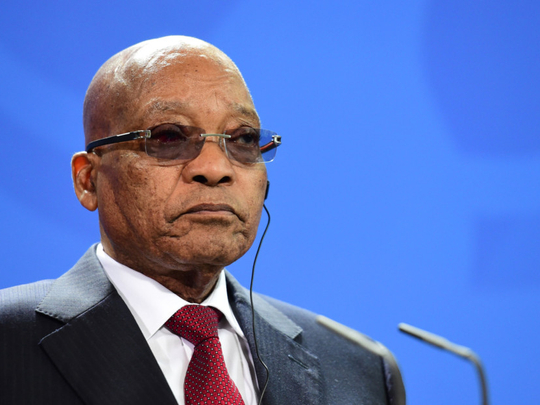
In Church Square, Pretoria, nasty loops of barbed wire surround the top-hatted bronze statue of Paul Kruger. Last year, the monument of South Africa’s 19th century president and symbol of Afrikaner chauvinism, was defaced with paint.
The incident followed “Rhodes Must Fall” protests by students at Cape Town university, who called for the removal of a statue of Cecil Rhodes, the British mining magnate.
Associated in the west with educational scholarships, for most black South Africans he was the architect of a system of exploitation of cheap labour in his murderous diamond mines. That structure was later institutionalised into a national ethos of racist hegemony known as apartheid.
Twenty-two years after apartheid’s end, questions surrounding race are far from settled. Like molten lava contained underground for too long, they are spurting to the surface. Just last month, two incidents showed how raw emotions are. Penny Sparrow, then a member of the opposition Democratic Alliance, provoked fury when she complained on Facebook about black “monkeys” littering a Durban beach.
Then Standard Bank suspended Chris Hart, its economist, for his comments on Twitter. Hart had noted a “sense of entitlement and hatred towards minorities”, which many took to mean that he thought black people were work-shy and chippy. Though Hart insisted his remarks had been misconstrued, Sim Tshabalala, Standard’s joint chief executive, wrote to staff warning that South Africa remained “a deeply wounded country”. The word “entitled”, he said, “is often a key word in racist thinking”, implying that black people harbour a “victim mentality”.
Race poisons many aspects of daily life. White people, for example, are not alone in thinking President Jacob Zuma’s African National Congress, plagued by allegations of corruption and incompetence, is part of the problem. Yet, protests organised around the slogan “Zuma Must Fall”, attended mainly by white people, misfired. Some saw them as an excuse to tell black people: “We told you so. You can never run a country properly.”
South Africa’s yawning wealth gap cannot be responsible for all this pent-up anger but it explains a lot. The economic gulf that the apartheid system was designed to perpetuate remains as wide as ever. The unemployment rate of black South Africans, who make up four-fifths of the population, is 29 per cent, against 6 per cent for white people. In 2013, 87 per cent of whites enjoyed middle to upper-income status, according to Goldman Sachs, while 85 per cent of black people were lower income.
Take the case of Thandi, a black girl who graduated from high school, aged 18, in 2010. She stood only a 4 per cent chance of getting into university and her prospects of finding a job within the first five years of leaving school were one in four. Only at 60, when she becomes eligible for a state pension, will she stand a reasonable chance of escaping poverty.
The fact that Thandi is a fictional creation, dreamt up by South Africa’s National Planning Commission to draw attention to South Africa’s desperate poverty trap, in no way diminishes her significance. Many feel white South Africans wholly underestimate the privilege they still enjoy in a society in which erasing the legacy of apartheid is proving harder than expected.
Since 1994, South Africa has largely failed to improve equality of opportunity, let alone of outcomes — even when growth was motoring at a reasonable, if insufficient, 5 per cent.
Now the battered economy will do well to avoid recession. The central bank puts potential growth at a measly 1.5 per cent, implying almost nothing to share around a population growing at 1.3 per cent a year. In the long term, the only solution is a radical overhaul of an education system that has utterly failed the black majority. Unless South Africa can train a skilled workforce capable of competing globally, it will never produce the growth rates needed to break the cycle of poverty and inequality.
In the short term, that means continuing to disappoint a black majority angry at the persistence of economic apartheid. The alternative is to redistribute more income and assets of the white elite. Neither is likely to do much for race relations. If Kruger stays in Church Square, the barbed wire protecting him will probably remain there too.
— Financial Times












